Subscribe to Apple Podcasts, Spotify, Google Podcasts, Stitcher, and everywhere you listen to podcasts (if you like the show, leave us a review!). Not much time? Watch short clips on TikTok, Instagram, and Youtube.
Welcome back to a new season, and new look ;) for Media Jungle! In this season we’re changing up the format a little to go deeper into the state of the news industry, the future of media, and focus on new media businesses that are changing the game.
As always, would love to hear from you… Simply respond to this email with your thoughts, ideas and comments. Thanks for your support!
In this episode, I’m joined again with my panel:
Robert Mahoney (@RobertMMahoney) — Executive Director of the Committee to Protect Journalists and author of Infodemic, as well as the current Executive Director of the Committee to Protect Journalists.
Joel Simon (@JoelSimonSays) — A fellow at the Tow Center for Digital Journalism, and a former Executive Director of the Committee to Protect Journalists. He’s the co-author of Infodemic: How Censorship and Lies Made the World Sicker and Less Free
Watch full episode/clips and subscribe to our Youtube channel here:
Below is a transcript of this episode:
Alex: Welcome to the 11th episode of the Media Jungle video podcast. I'm your host, Alex Ragir. We're back for a new season. We'll be coming to you every week to break down the business behind the news industry technology and the creator economy. In this week's episode, we're joined. Joel Simon and Robert Mahoney, two guys who have been studying the censorship evolution over the pandemic, and for years defending press freedom as the directors of the Committee to Protect Journalists. Their new book is called the INFODEMIC: How Censorship and Lies Made the World Sicker and Less Free. We're going to get into how this has played out in the U.S., Russia and Ukraine, and in China. But first:
Censorship has changed. It used to be the government scaring you into silence. Now there's social media platforms, troll farms, bots, fake news, shadow-banning. Nowadays, censorship is noise, with screaming and yelling in every direction. Steve Bannon calls it, “flooding the zone with sh*t.” So even if you find the real news, it's kind of messy.
Alex: Joel, Robert, thanks so much for joining us.
Joel: Thank you. So great to be with you.
Robert: Great to be with you.
RUSSIA MEDIA MANIPULATION
Alex: Russia. Their propaganda machine is at full throttle. We're seeing what information control is in this era. What do you think about what's happened with Russia since the invasion, and now it looks like the polls at least are showing that Putin's approvals ratings are up. I don't know if that's real or not. For me, it's very hard to understand what's really going on.
Robert: Russians, at least most younger ones that have access to Telegram and other channels knew this was going on, but the bulk of the Russian population, which is a demographic that is middle-aged and older, get their news from television. And television presented everything as hunky-dory in Russia doing the pandemic just as it's trying to do [in] Ukraine. So that was a classic dictator’s kind of way of doing it to bring in repressive legislation, churn out propaganda, and a crackdown on anyone who tells a different story from the one that you want out there.
Alex: Could talk a little bit about the new kind of mechanisms they're using to suppress ideas or cause confusion.
Joel: Let me first say, this is typical. Let's face it. Democracies were in disarray, the United States was in disarray, Europe was in disarray, they were really polarized and divided. China was ascendant in a certain way because they've managed to control COVID even though they did it in very draconian ways. It's not impossible that Putin felt very emboldened as we emerged from the pandemic that he was more in control domestically, and that the west was in disarray and obviously wanted to go into Ukraine for a long time, but maybe he calculated that this was the right moment because of the post-pandemic reality. We may see other surprises like this because, you know, Rob and I judge that like many authoritarians feel very empowered by the way things played out during the pandemic and they perceive the leading democracies as very weakened and more divided.
THE IMPORTANCE OF UKRAINIAN JOURNALISTS
Alex: Is there anything that was the most surprising or alarming thing about what's happening right now with the war?
Robert: Well, I think it's the cynical exploitation of people's health which gets me. You talked about Putin's approval ratings, and they were in the toilet before the pandemic. It's very difficult in Russia to get genuine opinion polls. If I called you up on a landline and say, "what do you think of comrade Putin," you're not going to tell me. It was clear that people were losing trust in him, and he sees the way that the United States is bungling the response to COVID.
Putin built a narrative that Russia was winning, and when it suited him, he would say, for example, if the dissident wanted to have hold a rally or a demonstration, he’d say “no, you can't gather because of COVID restrictions,”; but at the same time, he got 80,000 people put it into a football stadium and held a rally to laud Russia's response and the rollout of the first vaccine, the Sputnik V. So, he was able to the disarray in the west to bolster what he was doing as something that showed how good the Russian system was. And rolling on that, he was able then to reach these great heights in Ukraine of popularity by again, building a narrative that everybody is out to get Russia and [they] have to stand strong. Putin has come out of this pandemic and this misadventure in Ukraine, as more popular. Whether he's stronger is a different matter.
Alex: It's a sad moment for journalism over there.
Joel: Oh, yeah. We've spent years fighting for the rights of Russian journalists when they were under siege and making so many trips to Russia, to support them and engage with the government, and all the journalists we defended over years and years are in exile. Now they've had to leave. So that space that was so limited already as now, it's now been annihilated. On the other hand, it's interesting what's happening in Ukraine, where there was a strong, but small and somewhat marginal independent media. The information environment in Ukraine is kind of aligned with the war effort. It's interesting to see how agile these journalists are, then they're also doing an amazing job.
Let’s also recognize we're seeing a lot of reporting out of Ukraine from the international media; that is all made possible by Ukrainian journalists. You need a team of Ukrainian journalists if you have an international reporting crew to move around, function, to know the landscape, and some have been killed doing this work. It's certainly a difficult and dangerous and dynamic information environment in Ukraine, but we've also seen some positive and inspiring happening there and journalists doing amazing work.
CHINA CENSORSHIP
Alex: Now we're sort of seeing kind of an alignment with Ukraine and Russia. China really seems to have taken advantage of the new COVID surge that they're apparently having over there with Shanghai getting shut down. How do you think this is this like with them taking two years of continuously controlling a lot of the communication? How is that going to affect journalism in China and freedom of press there moving forward?
Robert: The freedom of the press in China is disappearing before our eyes. The last real free press hub in Asia that actually could report on what was going on inside mainland China was Hong Kong, and over the last two years or so, you see the slow strangulation of the free press in Hong Kong, and that that's a sign of what's going on inside China. The fact that there is no one publicly who dare criticize or bring up for debate China's approach to the whole pandemic, which is zero COVID.
In other words, sealing down whole neighborhoods or whole cities and trying to prevent the movement of people to hold the social spread of the disease. No one can question that. So, the Chinese authorities have locked down Shanghai. That's 25 million people in one city, which is the. Economic and financial hub of China. Anyone that tries to question that publicly is shut down. They're either arrested or their social media accounts are closed down so that the voices are silenced.
Alex: Does that affect the whole world, just by the fact of them proving and testing and using all these methodologies to our new technologies and different ways of controlling human psychology? Is that something that will sort of affect us and other countries?
Joel: I think so. you could also see it much more practically, which is that information is a global information system, right? So when China suppresses information about the origins of the disease or suppresses information about whether it's airborne or not, it affects the whole trajectory of the pandemic. If there were a free press in China, when this pandemic first emerged in Wuhan, maybe the outcome would have been different because people would’ve known about people getting sick and there was, you know, this disease that was spreading. And when you had medical professionals sounding the alarm, the Chinese government response was to suppress all of this and to control it.
And, yes, it's true. Once they realized that there was a public health threat, they imposed the full authority of the state and to mobilize the society in ways that, you know, would have been impossible in a democratic society. But we have to recognize that the trajectory of the pandemic was set by Chinese censorship. And the other thing we need to understand is that around the world, according to a study carried out by Human Rights Watch, 83 countries suppressed essential rights under the guise of protecting public health during the pandemic.
Rob and I call it the “COVID crackdown.” We saw this wave of censorship and information control that swept the world and changed the global political structures and power relationships in ways that are significant, and we're just becoming aware of it because we live in the information age and if you can set the narrative and control and manage information, then you have power. We saw that play out during the pandemic in very negative ways in ways that compromise public health rather than affirming it, and in ways that empowered autocratic and repressive, regimes, and weakened democratic governments around the world.
Robert: Chinese scientists gained knowledge of what was happening in Wuhan towards the end of 2019, and we're afraid to say so publicly. They’re the very opposite of what scientists do, which is to publish results and let people know what's going on. If we and the rest of the world had had that knowledge in November, December, January, February, we would have had a jump start on the pandemic, but it was suppressed. It was suppressed by the Chinese state [which} put its full weight into crushing anyone that came out with that information. And so that policy has gained currency because other countries wanted to keep control of the narrative did the same thing. We saw it with Iran, then onto Egypt, and throughout the middle east, and all of those countries failed badly in terms of the COVID rates of death rates and infection.
And then to answer your other question, the Chinese also introduced mass surveillance. They already had great surveillance there, but even more, because surveillance technology enables you to exercise social control. You can influence people's behavior, and you can restrict it. And those Chinese companies that make this stuff, facial recognition cameras, temperature scanners, CCTV cameras, sell this stuff abroad.
And so I think that one of of the outcomes of this pandemic is going to be an increase in biomedical surveillance and in just general surveillance. Because now in China, if you're infected, the government has your DNA, it has all your biometrics and it can follow you anywhere. It can prevent you from traveling. It can prevent you from buying a train ticket or a plane ticket, and it can quarantine you. It has all the surveillance equipment it needs to keep you in your home. It puts an electronic lock on your door, where if you open your door, it immediately sets off a digital alarm to say that you're breaking quarantine if you’ve been put in quarantine, and if you step outside, facial recognition software will grab you immediately. So you've got an incredible surveillance state that is enabled by a very sophisticated propaganda policy and very sophisticated surveillance, equipment and technology.
Alex: So they have a case study for implementing this in other places. What can the people who want to fight for press freedom and freedom of speech do?
Joel: This is an information environment in which political leaders can and are able to exploit in ways that undermine public trust, but perpetuate power. So I say if you're a concerned citizen, we need to find a way to break that cycle, and that means, if you live in a democratic country and you'll have the opportunity to participate, it means ensuring that we have leaders who act in a responsible manner. And instead of using these powerful new information tools to divide and polarize us, regardless of the consequences for our society and our health and anything else, try and find ways to a public square, a public dialogue, a public debate, a political debate that is healthy and where differences are recognized and engaged with, but not exploited. There's no magic bullet here.
I do think that the path to a better future is clear in the sense that our political leadership in so many countries failed us during the pandemic. We need to hopefully use the tools that are available to us to hold those leaders accountable, and we need to make sure that future leaders use these technologies to manage and ensure a healthier public discourse.
HOW THE ‘INFODEMIC’ MADE AMERICANS SICKER AND LESS FREE
Alex: What is an “infodemic” and how are we as Americans less free?
Joel: Well, an “infodemic” was a term that was used to describe the deluge of information, the misinformation, the confusion, the lies that accompanied the pandemic, and the basic idea of an “infodemic” is that governments are exploiting this opportunity, this moment of confusion to undermine and sabotage public understanding in ways that advance their own political agenda. It happened in the United States, certainly under Trump. It happened in almost nearly every country around the world. And the way in which it makes us less free is sometimes a little bit counterintuitive.
In the book, we talk about positive and negative liberty and a lot of people think of freedom in terms of negative liberty. That's like the freedom from government constraint. The fact that we had to wear masks or stay home were curbs on our freedom, but we also talk about positive liberty and that's the ability that people have to participate in the political process in ways that allow them to hold their governments accountable. And when you are subsumed in lies and half-truths, and if you were misled, then your ability to participate in the democratic process is compromised. And that's the way in which so many people around the world, their freedom was compromised. It wasn't only about mask-wearing, it's about the ability that people, that citizens have to need to fully participate politically.
Alex: In what ways did the Trump administration or the U.S. government confuse what's happening?
Robert: Well, there are many ways, but one of the things is to just sow confusion. I mean, you want people to take measures to protect the health of the people around them during a pandemic. You cannot, you cannot compel people to do things, especially in the United States for very long. Therefore, you need to co-opt them and you need to nudge them and their behaviors, and for that you need trust. If the government says I should wear a mask in order to protect myself, I have to have trust in the government. That trust was totally lacking [when] mask-wearing became politicized because we couldn't get it at the beginning of the pandemic. You’ll remember how confusing it was? We couldn't get real information on which to base informed decisions, and Trump and those in the administration capitalized on this and just sewed confusion, and we had a politicization of a public health crisis which left us all sicker. I mean, the figures tells the story! Look at how many Americans have died and how many of those deaths were needless.
Alex: How did the media play a role in this? Where they also complicit to sewing confusion?
Robert: Well, the media, especially the national media, tried to do a decent job at reporting. But if you don't have access to the right experts and you're not getting accurate information from the government, the media is left to work it out on its own. Do you remember that press conference where Deborah Birx, the advisor is sitting, saying nothing while Trump is telling us that we maybe have bleach and sunlight? I mean, you know, we had to make sense of that. So the sense-making institutions, whether it's the CDC, whether it's the media, weren't working properly and it sowed confusion. And it allowed for the politicization of basically a public health crisis, and we paid the price.
Joel: Another way to think about it, and the way that we sort of described it in the book, is we profile this former police officer, who now teaches at a university in Arizona, named Charles Loftus. [We] described his process: He's a Trump supporter, got COVID and took a antimalarial drug, and [the book focuses on] how he tries to navigate within this immediate environment. He's someone who genuinely wants to understand what's happening around him as a pretty sophisticated news consumer, but people don't understand that people consume news, not necessarily as rational individuals, but as part of communities.
So the people around them and the way they think, and their political orientation really informs our understanding. So what politicians did, and notably Trump, but not just Trump and not just in this country, was [recognize] the way in which people consume information and how it reflects their political beliefs. [They] exploited that with these lies and created a kind of self-reinforcing information environment in which whole groups of people were completely alienated and disconnected from the science and from the experts. And this was a strategy that was very effective politically in this country and was actually weaponized and modified in many other countries around the world.
Alex: How does this play into to a lot of people we know from a lot of studies with people [who] trust local news more than any type of news? And we also have a crisis in local news where they're shutting down everywhere you look. We have “news deserts,” places that do not have any local news or very little. How did that play out in this whole problem?
Robert: We've got whole communities without any news outlets at all, and then in others, where you have the remnants of a news outlet, called “ghost papers,” they've basically been gutted and there's very little reporting. So if you were trying to work out what was going on as an ordinary citizen, you have national media, some of which was very politicized and it was viewed as “pro-Trump” or “anti-Trump” [with] very few actually down the middle, but your local paper may not have been there. Your local radio station may not have been there. In those communities, there was a functioning local news outlet that we’re able to give down-the-middle news about mask-wearing or where you could get vaccines when they came in. Basically actionable information. The kinds of stuff that people want coming from people that lived in that community. And there was this element of trust because in the end, what we show in the book is that without trust, you cannot effectively handle a pandemic. Local news organizations build that trust over years because the reporters come from the community where the readers are; you're all in that together. And this pandemic showed us what exactly is happening.
We tell a story of a newspaper [crossing] the border to Tijuana, Mexico, which did do a great reporting [on] the official narrative of how bad the pandemic was and how many people were dying. They sent people to the morgue to count bodies. They sent people out into the streets to build a counter narrative to the official one. In many thousands of U.S. communities, that kind of work just isn't being done and people end up doing their own research. How many people became expert virologists thanks to Google during this pandemic?
PROBLEMS WITH PLATFORM MODERATION
Joel: If you're in this space, you recognize that [social media platforms] are private companies and they're not constrained by the First Amendment. We don't actually want the government in there dictating what the platform can and can't, and how they have to moderate their content. But the reality is that they are way too powerful, they're extraordinarily powerful. And a lot of information circulating on these platforms is highly damaging to public health and democracy. And there's a kind of expectation that they'll intervene in some ways to manage the information in a responsible way. The problem is that the platforms are completely reactive. Nobody understands how their policies work. They're not transparent, they can't articulate and explain how they make decisions. They seem to respond to public pressure. One day they have one framework, another day they have another. They are inconsistent in their application of human rights principles. They have different standards from one country to another. It’s all a big mess. So the feeling that people have that the platforms are moderating content in terms of what they should [moderate]. Their sort of responsibility is that they should be moderating this content in a more effective way. The problem is that they're just doing a lousy job and this really had an impact during the pandemic.
Alex: I mean, you're in an interesting place right now as big advocates for freedom of the press and freedom of speech and sort of saying we should suppress some views.
Joel: I don't think we're saying that. What we're saying is the platforms have a social obligation to act in a responsible manner because they're powerful, but we're not saying specifically that this is exactly how they should do it. I think that's really our argument.
Alex: Well, I commend both of you so much for doing this important work and trying to figure out what happened. I think you're really touching on something that a lot of people are feeling, which is what just happened over the past two years. It's just been a whirlwind of information and confusion that we may not have had in years past.
Joel: Well, thank you. This was a great conversation and hopefully there are some actionable ideas in the mix here. Because you're right [that] this has been a very confusing moment. And I think everyone, everyone feels somewhat overwhelmed. No question.
Robert: Well, I certainly feel overwhelmed by it all. [laughs] And I’m very glad we had this opportunity to talk. I would just say to people to don't lose heart. This may be a once-in-a-century occurrence, but there is a way out of this. And I hope that by reading this book, although we don't come up with great solutions, but pointing out the problems, maybe people who are more intelligent than I am, can think of some ways that we can dig our way out of this mess.

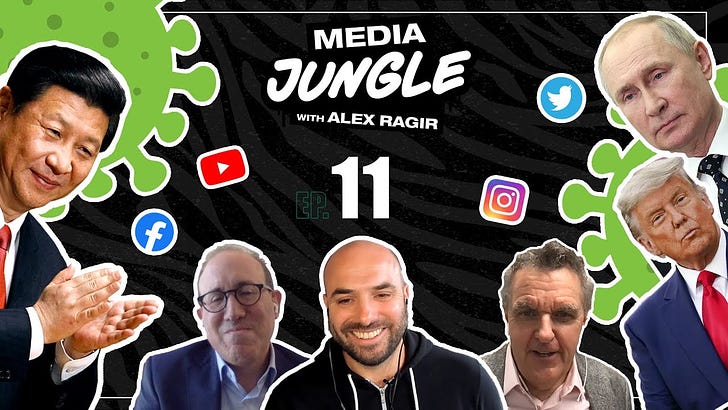




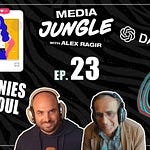
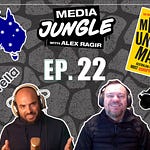
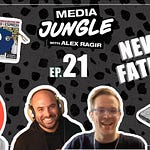
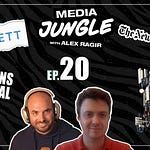
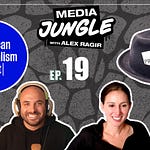
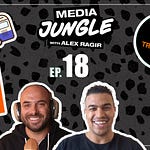

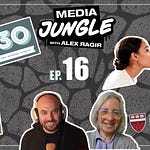
Infodemic: How Censorship, Lies Made The World Sicker and Less Free